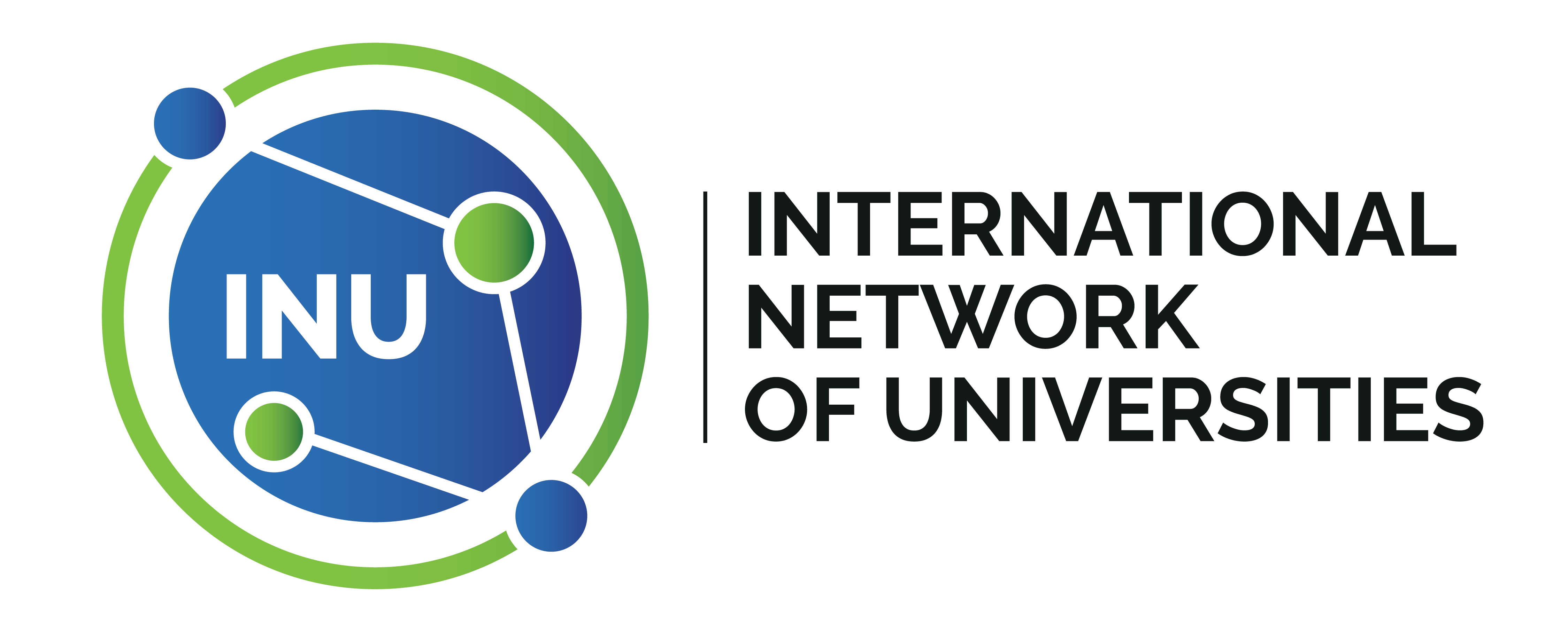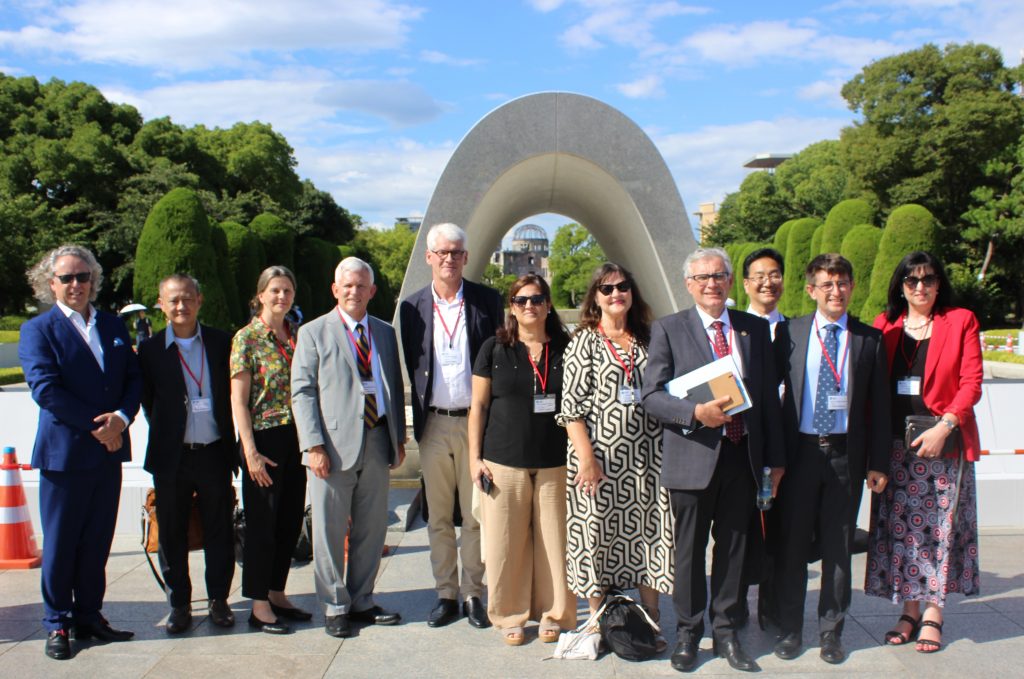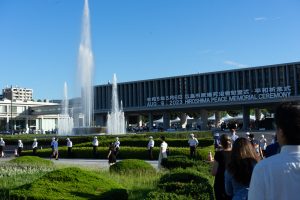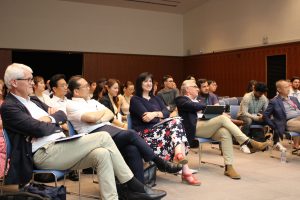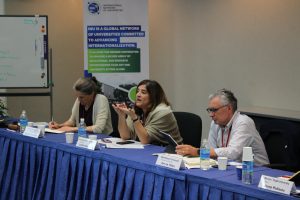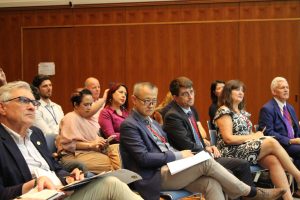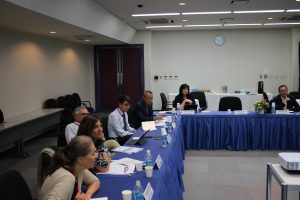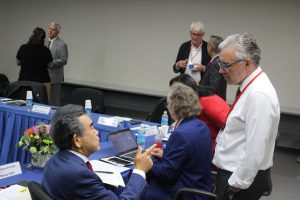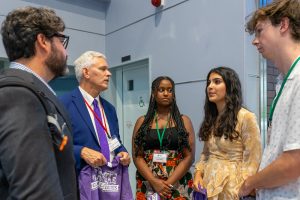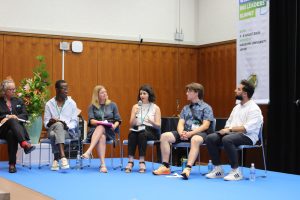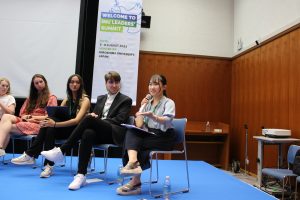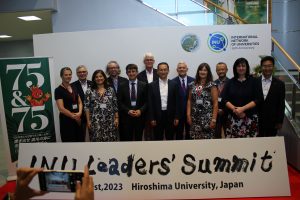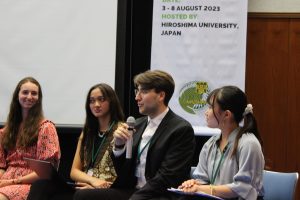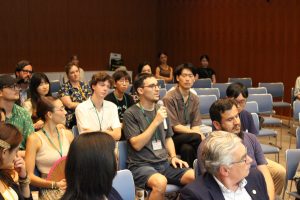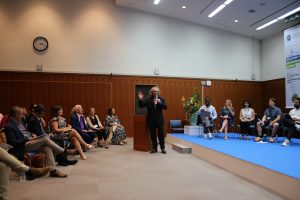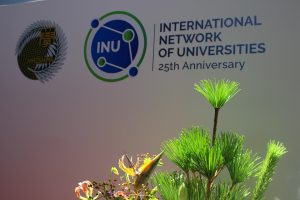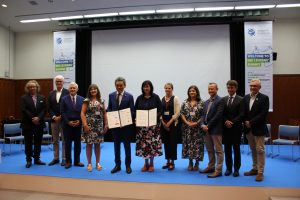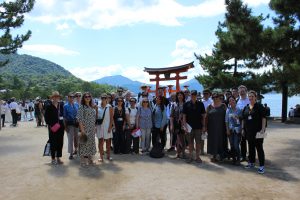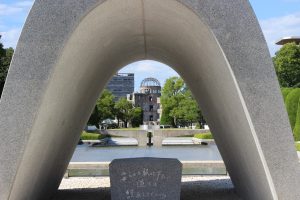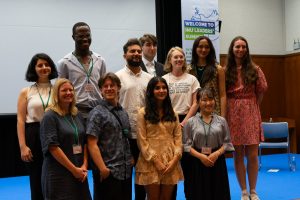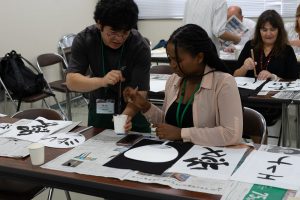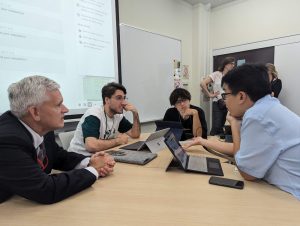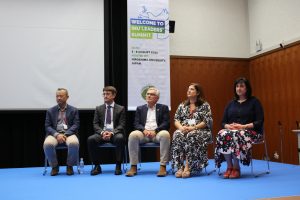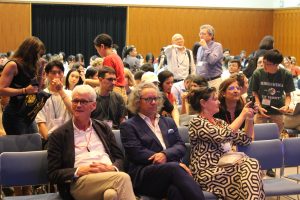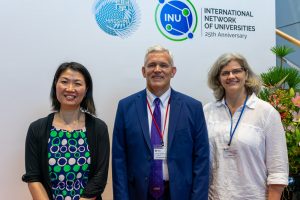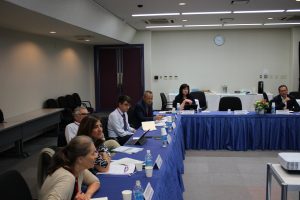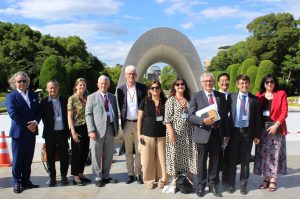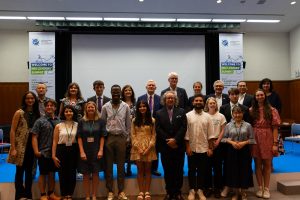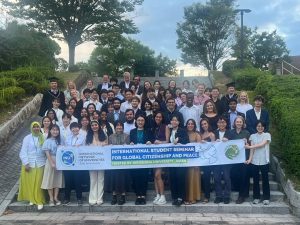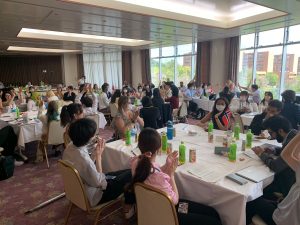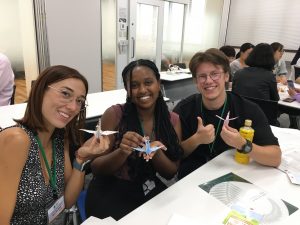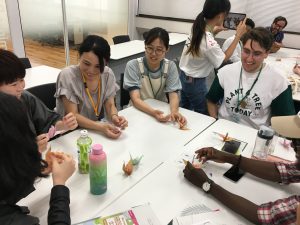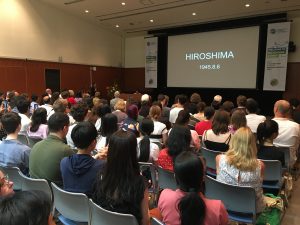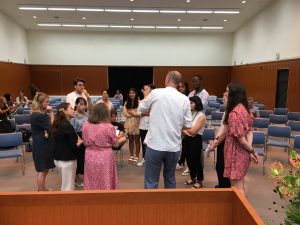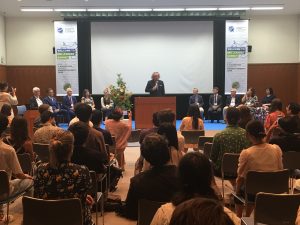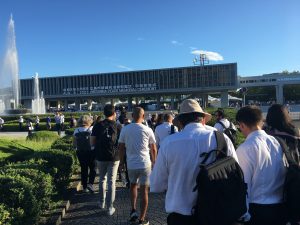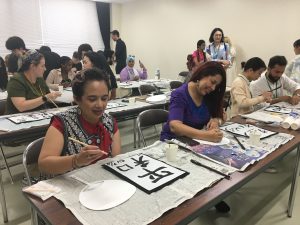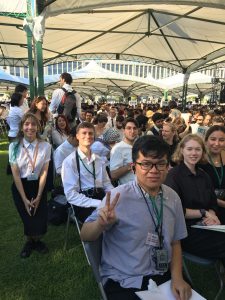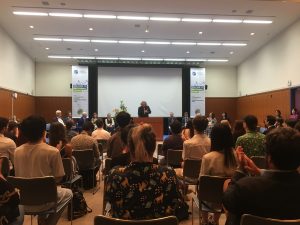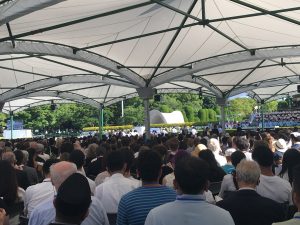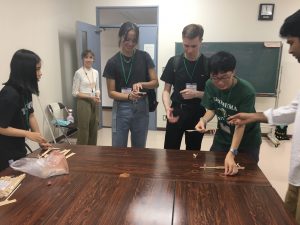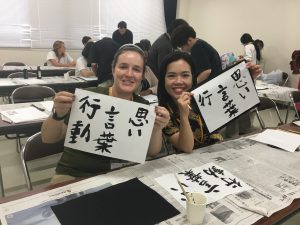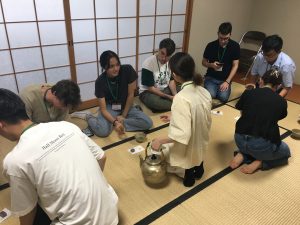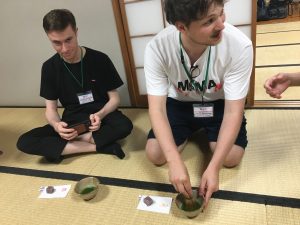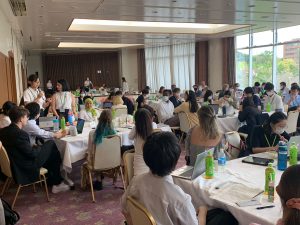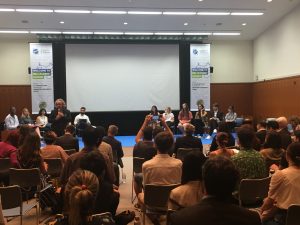University leaders from nine INU member universities met in Hiroshima last week (August 3-8, 2023) to attend INU Leaders’ Summit, engaging with peers in an intimate, global forum and deepening the ties between member universities at the most senior level.
The Leaders’ Summit, combined with 36th INU Council meeting, and also INU’s flagship program for students, International Student Seminar for Global Citizenship and Peace, were brought together at Hiroshima University to mark 25 years of INU network. It also marks another important anniversary, the 75th anniversary of the establishment of Hiroshima University, which also encompasses its 75 years of pre-history, making it a remarkable 150-year milestone.
During the Summit, which addressed the theme of ‘The role of universities in internationally changing political and social contexts’, leaders were invited to share with each other the challenges they face in the process of social change and development, exploring the impact of education for economic, political and cultural transformation in society.
Universities represented at the Leaders’ Summit include; Parahyangan Catholic University (Indonesia), Malmö University (Sweden), James Madison University (USA), Universidad Nacional del Litoral (Argentina), Rovira i Virgili University (Spain), European University Viadrina (Germany), Stellenbosch University (South Africa), Hiroshima University (Japan) and Osnabruck University, (Germany).
Leaders appreciated the openness to discuss challenges faced by like-minded Universities in diverse political contexts, speaking candidly about their future plans and concerns.
Following round table discussions, INU leaders signed a Charter, with a pledge reaffirming our shared commitment to inclusion, equity and diversity, the integration of education and research for societal benefit, the protection of academic freedom and threats against democracy faced globally.
The charter also provided the opportunity for INU members to re-affirm their institutional commitment to INU, with emphasis on core values such as global citizenship, togetherness, sustainability and embedding technology.
The summit coincided with August 6 commemoration of atomic bombing of Hiroshima in 1945. University leaders, council members and students were fortunate to be able to attend the Peace Memorial Ceremony, with addresses from Prime Minister of Japan, Governor of Hiroshima and Secretary General of United Nations.
Leaders, Council members and students also heard a first-hand account of an atomic bombing survivor, Ms Keiko Ogura, who was just 8 years old when the bomb was dropped on Hiroshima, causing devastation and immense human suffering. Ms Ogura has dedicated her life to re-counting her experiences, to spread the message of peace and the importance of nuclear disarmament. The impact of her testimony is one that will remain with us and highlights the importance of global citizenship and peace education, endorsing international dialogue and understanding, over conflict.
In addition, a student symposium provided a platform for eleven students from INU member universities (attendees of INU’s International Student Seminar for Global Citizenship and Peace) to share their hope and concerns faced in the current global social and political climate with University Leaders. Students talked about how they would like to see Universities better prepare students to succeed – as well as the role they think Universities should play in society, in both a local, regional and global context.
The symposium provided a student voice to the Leaders Summit and has given impetus to the students to prepare their own document as a call for change, drawing on key actions and concerns raised during the Student Symposium discussion.
University leaders and Council members also took the opportunity to join the International Student Seminar for Global Citizenship and Peace, to experience it for themselves. In 2023, the seminar has a theme of ‘Climate Emergency and Action” and Leaders/Council members were given an insight into what the students experience during the seminar, spending time in the workshops delivered by lecturers from member universities (Malmö University (Sweden), James Madison University (USA), , Tecnológico de Antioquia (Colombia), and Parahyangan Catholic University (Indonesia)) on a range of themes relating to climate change. This was followed by a Japanese Cultural session, led and delivered by Hiroshima University students, where students and staff experienced the traditions of a Japanese Tea Ceremony, calligraphy, kendama and other Japanese games.
The Student Seminar culminates in a United Nations Role Play – where students working in allocated groups representing a country delegation to the UN, where they debate, negotiate and vote on amending and passing a draft UN resolution on “Contributing to the Realization of the Right to a Clean, Healthy and Sustainable Environment’.
In reflecting on the student seminar experience, one student commented ““The whole seminar has been enlightening. I’ve never been in this kind of situation before, with individuals from all over the world. Learning about cultural differences and similarities only added to the friendships made. Attending the peace ceremony was a humbling and powerful experience, one that I never would have envisioned. It’s one thing to learn about the impacts of war in a classroom, it’s another thing entirely to hear from survivors, see how a city has reacted, and view the museum telling stories of tragedy. The lectures and workshops too, are on completely different topics to my chosen discipline, but the most different ones I found the most interesting, as it was new and facilitated a deeper understanding of the planet we live on. I’m so, so grateful for this rich experience, and I believe I have developed my understanding as a result.”
Coinciding three INU events in Hiroshima, the Leaders’ Summit, Council meeting and Student Seminar delivered a renewed sense of togetherness between INU members at all levels – institution-to-institution, peer-to-peer and student-to-staff, reinvigorated the spirit and importance of international cooperation, partnership, friendship and dialogue. As the INU network continues to grow with new member universities, and new initiatives being developed, there is reinvigorated bond between staff, students and institutions. It also was a moment to pause – and recognise the successes of the network over the past 25 years, as presented through the INU impact report.
INU would like to take this opportunity to formally thank our colleagues at Hiroshima University for their support and dedication in hosting these events so brilliantly.
Many thanks also to INU Leaders, Council members and students for their time and commitment in travelling to Hiroshima and for their openness to engage in the Leaders’ Summit events.
- I
